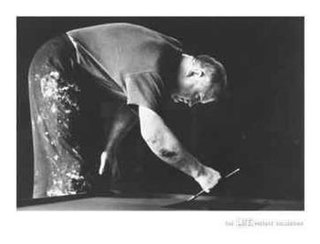A Quote by Al Jourgensen
The more you think, the more you ruin things. Art has to come viscerally; otherwise, forget it.
Related Quotes
I think art must be tough! I think art has to be hard. I don't think it should be easy. I think it should take foot-pounds of energy to produce that art, otherwise we would have more mediocre writers, and we don't have room for any more mediocrity in the world. There's already enough of it being visited on us night and day through the Internet, and through television, and through politics.
I won't forget those kind of things, but I just want to write them down and look at them. It's almost like when things like music come out and you're listening to a song and you have experiences with art or phenomena that supersede your simple relationship with them as just a piece of art. They're more than that. That's just what those quote are for me. They're big, they're important.
The superior man, when resting in safety, does not forget that danger may come. When in a state of security he does not forget the possibility of ruin. When all is orderly, he does not forget that disorder may come. Thus his person is not endangered, and his States and all their clans are preserved.
The one object of fifty years of abstract art is to present art-as-art and as nothing else, to make it into the one thing it is only, separating and defining it more and more, making it purer and emptier, more absolute and more exclusive - non-objective, non-representational, non-figurative, non-imagist, non-expressionist, non-subjective. the only and one way to say what abstract art or art-as-art is, is to say what it is not.
As our lives speed up more and more, so do our children's. We forget and thus they forget that there is nothing more important than the present moment. We forget and thus they forget to relax, to find spiritual solitude, to let go of the past, to quiet ambition, to fully enjoy the eating of a strawberry, the scent of a rose, the touch of a hand on a cheek...
My own experience as a reader and writer has been that the more I read, and the more I live, the more different "types" of poetry I grow to love. I might not even believe anymore that there are "types" of poetry at all. I've come to love things I once would snootily have dismissed. Of course I still have my likes and dislikes, and there are things I think are just plain old bullshit, but more and more I am far more trusting of my loves than my dislikes.
Now, we don't really believe these things - intellectually we know better - but we believe them viscerally, and live by them, and they cause us to prioritize our own needs over the needs of others, even though what we really want, in our hearts, is to be less selfish, more aware of what's actually happening in the present moment, more open, and more loving.
And I do think that good art - the art that tends to last - is that art that hits human beings on several different levels at once because everybody's different. Some people approach art through their emotions, others through their head, and the art that can appeal to all of those levels is more likely to reach more people. Having more people see the work doesn't necessarily mean better art but it stands a better chance of lasting.




































